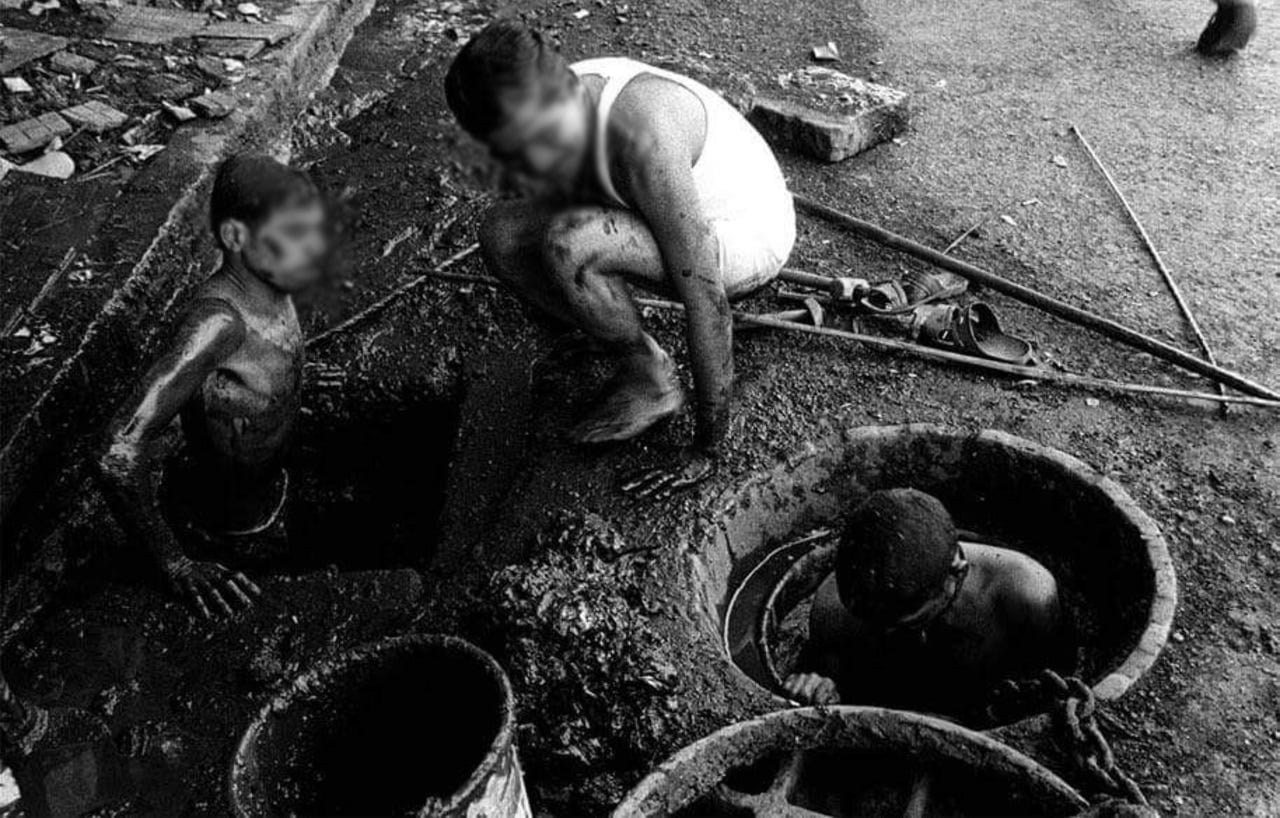The Water They Wouldn’t Take
A quiet knock

STORYTELLING
The Water They Wouldn’t Take
A quiet knock
It was supposed to be just another Tuesday. Midday sun baking the streets of Gurugram, India. I had barely caught a few hours of sleep after an all-nighter and was drifting toward a nap when the doorbell rang.
Don’t have a premium membership?
Two sewage workers stood outside. One of them politely asked if I could keep the taps off for thirty minutes. They had opened a drainhole nearby and didn’t want overflow to slow their work. I nodded. No questions. It made sense.
As I turned to head back in, one of them, drenched in sweat under the brutal 35°C sun, asked for some water.
Of course. It was the least I could do.
A glass offered, a glass declined
I returned with two bottles and a few glasses. But just as I stretched my hand, the man gently refused. Instead, he offered me a battered plastic bottle to pour water into.
“It’s okay,” I said. “Take the bottles. Or at least the glasses.”
Another shake of the head.
“Give me your bottle, I’ll fill it inside and bring it back,” I tried.
Another no.
It clicked.
The caste you carry
This wasn’t about water. It was about touch.
These men were from Scheduled Castes — communities in India historically deemed “untouchable.” And despite years of policy, protest, and promises, caste isn’t a ghost of the past. It’s a breathing, everyday presence.
Manual scavengers, sewage cleaners, waste workers: Dalit communities are still overwhelmingly overrepresented in these jobs. They’re often made to feel less than human, and worse, they’ve internalised it.
So deeply that a glass of water offered in good faith must be refused.
We don’t see it because it looks normal
If you grew up in India, caste isn’t always something you notice. It’s just there.
In the surnames, we ask. In the temples we walk into. In the homes that won’t allow certain people into the kitchen. In the workers who clean our drains but won’t share a cup of tea.
And because it’s been there so long, we stop seeing it. It becomes normal. Even for those oppressed by it.
This normalisation is the real poison. It makes you think it’s okay to have a separate cup for the housemaid. Or that your gardener should bring his own water bottle. Or that your kindness is an exception, not a default.
For the international reader
Caste is not race, but it’s just as insidious. It isn’t always visible on skin, but it shows up in last names, dialects, villages, and even body language.
Dalits, once called “untouchables,” were historically banned from entering temples, drawing water from shared wells, or even letting their shadow fall on upper caste people.
While legally abolished, the practice of untouchability continues in subtle and not-so-subtle ways. Particularly in rural areas, but not only there. Urban spaces carry it too. It just wears better clothes.
The water I drank
After they left, I stared at the untouched glasses on the tray. The same ones I drink from every day.
What does it say when someone is so used to being disrespected that dignity feels suspicious?
That their self-preservation instinct says: Don’t touch. Don’t trust.
And what does it say about me that I hadn’t seen it sooner?
No big moment. Just small ones.
Caste in India doesn’t need a headline to exist. It hides in the everyday. It’s in a glass of water, not accepted. In a bottle handed forward so the lines aren’t crossed.
You can’t fix it with a tweet. Or a LinkedIn post. But you can start by paying attention.
This wasn’t a life-changing moment. No dramatic confrontation. Just a quiet, hot afternoon. A question of water. And the realisation that in 2025, untouchability still knocks on our doors.
And sometimes, we hand it a glass.
